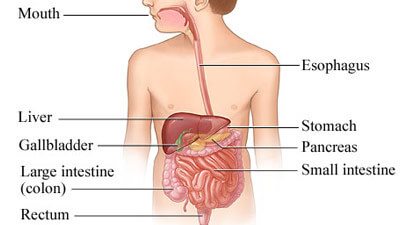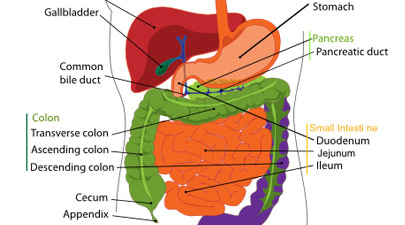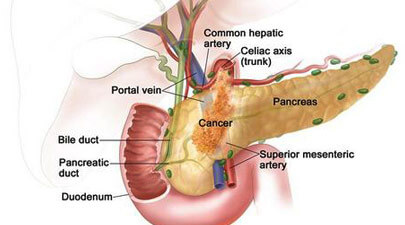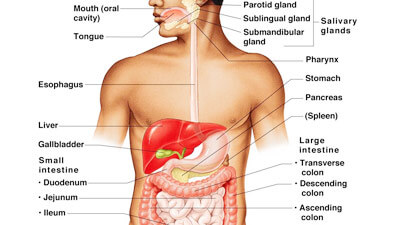The Human Digestive System

The system you need to care most for enjoying the relishing tastes of blessed life! So, why not you should be acquainted with some of the most basic and interesting human digestive system information? Digestion can be regarded as a kind of catabolism which is one of two major processes of metabolism, while the other being anabolism. The alimentary canal system, as a broader term, refers to the mechanical as well as biochemical disintegration of dry, stiff and sizable dietary substances into smaller and simpler molecules. Starting right from your mouth and ending at anus, it consists of a long canal with complementary organs that assist in its overall functioning. The human digestive system is capable of breaking down a number of dietary items, like carbohydrates (starches), proteins and lipids with the help of various fluids, acidic secretions, enzymes and chemicals that are poured into the digestive tract at different points.
The finely broken down food molecules enter the blood circulatory system and reach different parts of the body. Major organs and contributing parts of the gastrointestinal food digestion include mouth chamber, esophageal tube (or food pipe), stomach, small intestine (ileum, duodenum, jejunum), large intestine or colon (transverse, ascending and descending), rectum and anal opening, etc.
The major accessory organs that make complementary contribution to the efficiency of digestion procedures are five in number, namely, pancreas, liver (vital gland), tongue (manipulation of food and phonation), gallbladder and salivary glands. The glandular structures in mouth secrete saliva, and initiate the digestion of simple carbohydrates in the mouth (first phase of digestion), and food pipe (esophagus) transfers boluses of food into stomach with the help of peristaltic movement through cardiac sphincter (gastroesophageal junction).
Stomach (through its contractions and gastric juice secretion) helps in churning of food, killing germs, digestion of proteins and maintenance of an ideal pH (power of H+) for enzymatic actions. Major function of the system is to convert large and complex particles of food into smaller and simpler compounds/molecules that can be easily absorbed into the blood stream and transported to all the living cells where they are metabolized for energy extraction to carry out the alpha to omega activities in the body.
However, gastrointestinal system (particularly stomach with its acidic secretions) also plays a significant role in the killing of harmful, disease causing microbes and viruses that enter the body through water or engulfed with food. If you are an early-stage student of biology, the knowledge of human digestive system will be very useful for you.
Informative Articles About "Human Digestive System"
Parts Of Digestive System
The components of body’s fuelling system can be grouped into two ,...
Digestive System Function
The gastrointestinal organization in humans and other advanced ,...
Digestive System Diseases
Dozens of abnormalities have been found associated with the ...
Digestive System Facts
Are you curious to know the amazing truths about the parts of...





